James Paterson explains why you should move away from the semi-auto modes and use your Nikon completely manually

Cameras are more intelligent than ever these days, but despite all the advancements of recent times one thing still holds true – to get the most out of them, you need to take full control. By eschewing auto metering and tech, we can become better photographers. We can get to the heart of concepts like exposure, depth of field, focusing, lighting and processing. Of course, auto modes have their place. The results can be just as good when you let the camera take charge, and at times the speed and flexibility you get with auto features is essential. But if you can break away from them, you can form a deeper understanding of photography and light. It forces you to think on your feet, take charge of the look of your images and sets you apart from the point-and-shooters.
But it’s not just about learning. There are some situations where manual control is essential, like studio photography, or for bulb exposures. Then there are times when auto can be a hindrance, like when you need a consistent exposure, or if the metering goes awry, or when shooting after dark. If you have the confidence to switch off auto, then you have a better chance of nailing the shot.
So we’re going to show you how to abstain from auto and take full control of your photography. We’ll begin with manual exposure, but this is not the only form of manual control. We’ll also look at other factors – from mastering manual flash, to the benefits of manual focusing.
Manual exposure
Denne historien er fra July 2019-utgaven av N-Photo: the Nikon magazine.
Start din 7-dagers gratis prøveperiode på Magzter GOLD for å få tilgang til tusenvis av utvalgte premiumhistorier og 9000+ magasiner og aviser.
Allerede abonnent ? Logg på
Denne historien er fra July 2019-utgaven av N-Photo: the Nikon magazine.
Start din 7-dagers gratis prøveperiode på Magzter GOLD for å få tilgang til tusenvis av utvalgte premiumhistorier og 9000+ magasiner og aviser.
Allerede abonnent? Logg på
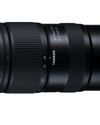
Tamron 28-75mm f/2.8 Di III RXD G2
The original version broke the mould for ‘trinity' standard zooms. The G2 enhances handling and performance further still
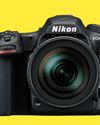
Nikon D500
Nikon's flagship DX-format DSLR is a modern classic. And while it hasn't been out of production for long, it left a hole in Nikon's camera line-up that's never been filled

Laurence Griffiths
With so much sporting action this summer, Laurence Griffiths of Getty Images reveals how to catch every goal at the Euros, details Getty Images' 24/7 Olympics coverage and why he always has a wide-angle ready. Keith Wilson managed to grab him before kick-off...
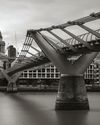
Ghost town
Adam Waring uses ND filters to subdue the hustle and bustle when shooting busy cities
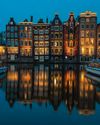
Creative cities
Experienced travel photographer Matt Higgs provides top tips for stunning shots of city sights

If at first you don't succeed...
Tom travels to the other side of the world to have another go at shooting an elusive image and displays the power of his perseverance
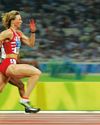
Shoot the summer of sports
Have the Olympics and Euros inspired you to photograph sport? Mike Harris shows you how to score a portfolio of top shots

Osprey & prey
Birds of a feather Gary Jones and Leigh Pugh photograph ospreys from a purpose-built hide
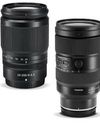
Superzoom lenses
These lenses will have you in for a long stretch, some more than others in the wide-angle to telephoto stakes
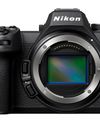
Nikon Z 6III
With a revolutionary 'partially stacked' full-frame sensor, the Z 6III fits flagship camera features in an compact enthusiast-level body